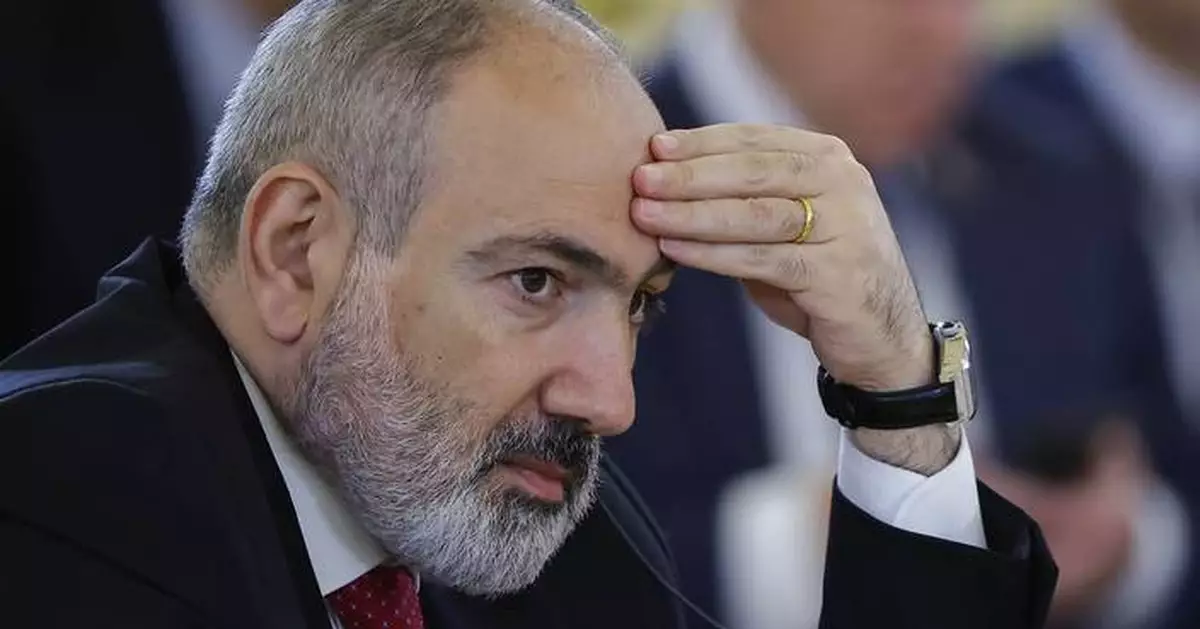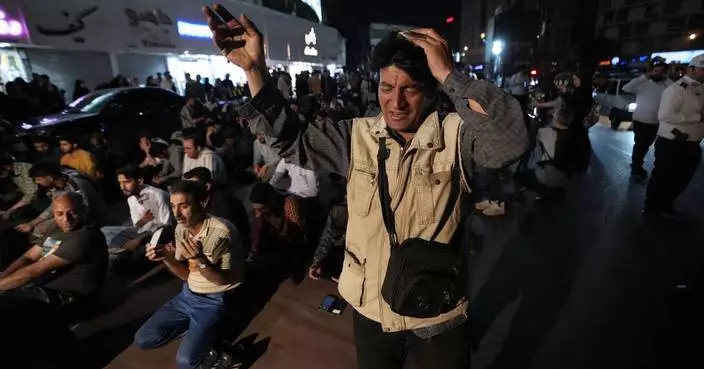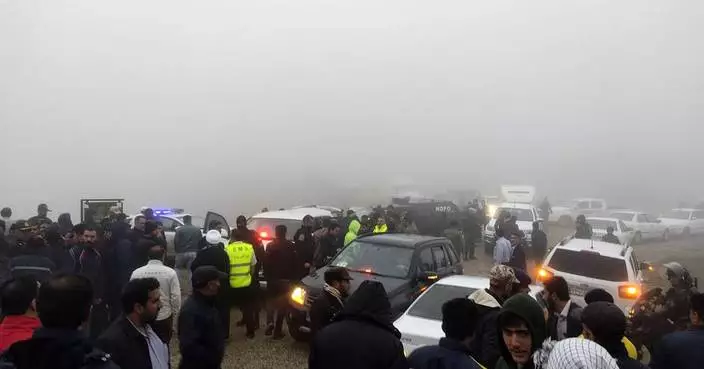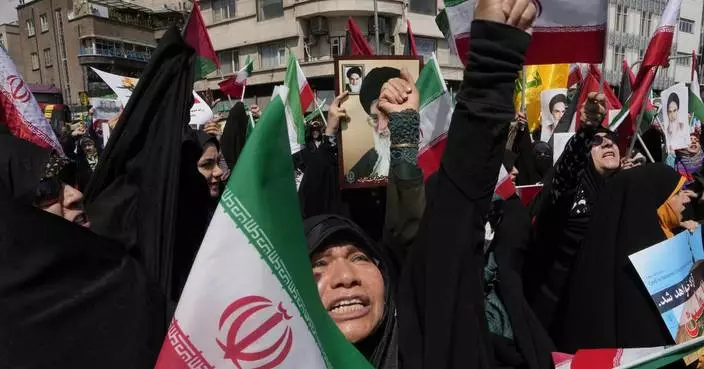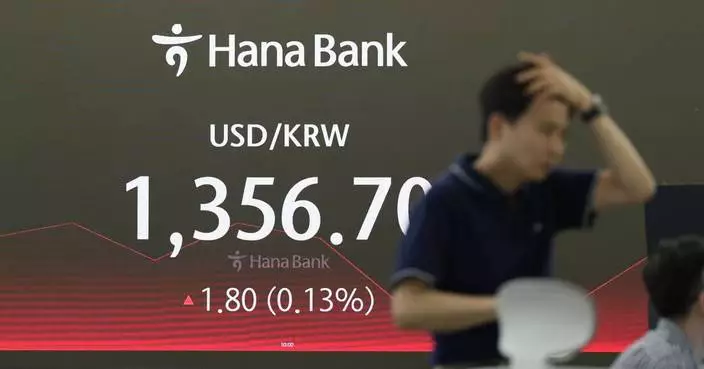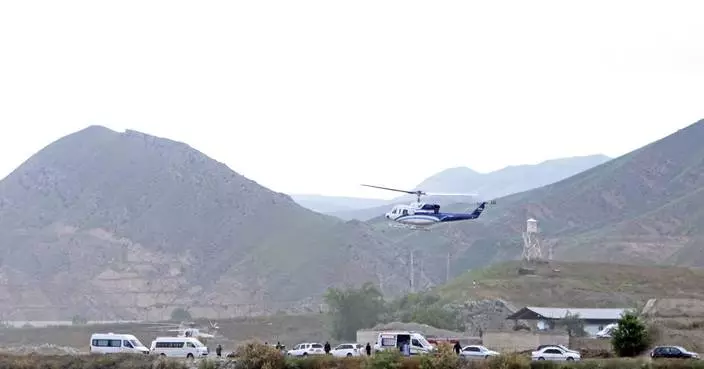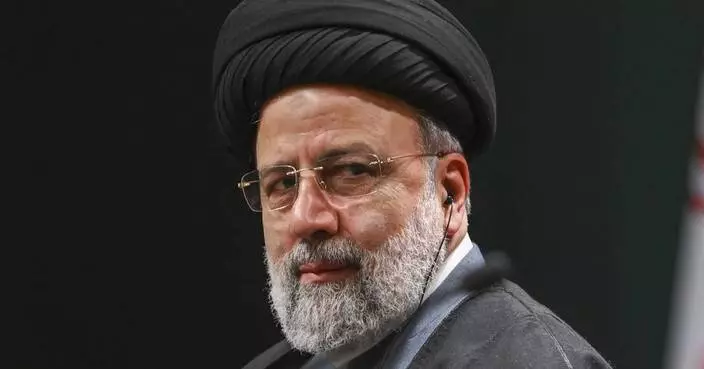Yerevan, ARMENIA (AP) — Thousands of protesters gathered Thursday in the Armenian capital, Yerevan, to demand the resignation of Prime Minister Nikol Pashinyan over his government's decision to hand over control of border villages to Armenia's long-time rival Azerbaijan.
Armenia and Azerbaijan have fought two wars since the Soviet Union collapsed and Armenia said in April that it would return the villages to Azerbaijan. That decision came after Azerbaijan in September waged a lightning military campaign in Nagorno-Karabakh, a majority ethnic Armenian region inside Azerbaijan. That caused tens of thousands of people to stream into Armenia, sparking demonstrations as protesters called for the prime minister to be ousted.
Protesters led by a senior cleric in Armenia's church walked a distance of around 100 miles (160 kilometers) from villages near the border with Azerbaijan to Yerevan where they gathered Thursday in Republic Square.
Videos shared on social media showed thousands of people waving Armenian flags. A senior Armenian cleric said a prayer and told the protesters he gave Pashinyan one hour to resign, blaming him for the loss of Armenian territory.
Archbishop Bagrat Galstanyan told protesters they should “engage in peaceful acts of disobedience,” if Pashinyan did not listen to their demands.
Pashinyan visited Moscow Wednesday and held talks with Russian President Vladimir Putin amid spiraling tensions between the estranged allies. The meeting took place a day after Putin began his fifth term at a glittering Kremlin inauguration which the Armenian leader did not attend.
Putin's spokesperson Dmitry Peskov was quoted Thursday by Russian state news agency Tass as saying the two leaders had agreed to the removal of Russian forces from some Armenian regions.
In brief remarks at the start of the talks, Putin said that bilateral trade was growing, but acknowledged “some issues concerning security in the region.”
Pashinyan, who last visited Moscow in December, said that “certain issues have piled up since then.”
Armenia’s ties with Russia, a longtime sponsor and ally, have grown increasingly strained after Azerbaijan waged its military campaign in September to reclaim the Karabakh region, ending three decades of ethnic Armenian separatists’ rule there.
Armenian authorities accused Russian peacekeepers who were deployed to Nagorno-Karabakh after the previous round of hostilities in 2020 of failing to stop Azerbaijan’s onslaught. Moscow, which has a military base in Armenia, has rejected the accusations, arguing that its troops didn’t have a mandate to intervene.
The Kremlin, in turn, has been angered by Pashinyan’s efforts to deepen ties with the West and distance his country from Moscow-dominated security and economic alliances.
While Pashinyan was visiting Moscow, Armenia’s foreign ministry announced that the country will stop paying fees to the Collective Security Treaty Organization, a Russia-dominated security pact. Armenia has previously suspended its participation in the grouping as Pashinyan has sought to bolster ties with the European Union and NATO.
Russia was also vexed by Armenia’s decision to join the International Criminal Court, which last year indicted Putin for alleged war crimes connected to Russia's actions in Ukraine.
Moscow, busy with the Ukrainian conflict that has dragged into a third year, has publicly voiced concern about Yerevan’s westward shift but sought to downplay the differences.
Kremlin spokesman Peskov conceded Tuesday that “there are certain problems in our bilateral relations,” but added that “there is a political will to continue the dialogue.”
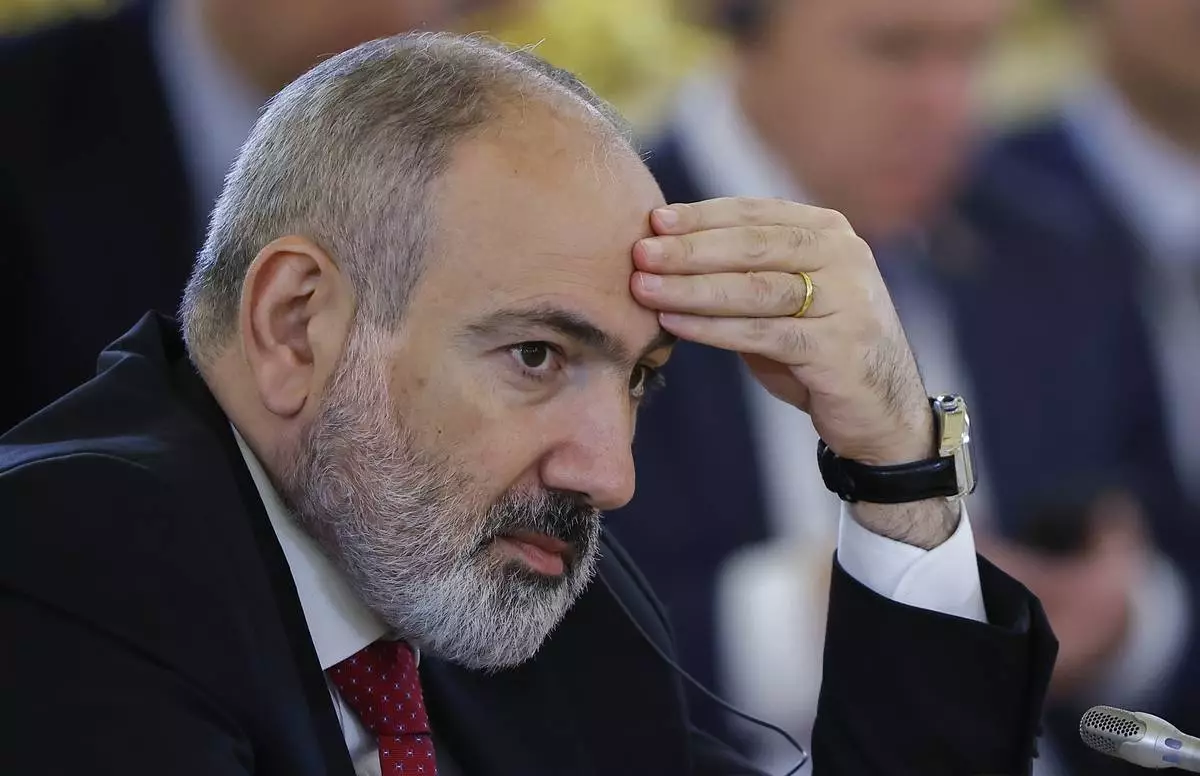
FILE - Armenian Prime Minister Nikol Pashinyan attends a meeting of the Supreme Eurasian Economic Council of the Eurasian Economic Union at the Kremlin in Moscow, Russia, on Wednesday, May 8, 2024. Thousands of protesters gathered Thursday, May 9, 2024, in the Armenian capital, Yerevan, to demand the resignation of Prime Minister Nikol Pashinyan over his government's decision to hand over control of border villages to Armenia's long-time rival Azerbaijan. (Evgenia Novozhenina/Pool Photo via AP, File)
LONDON (AP) — WikiLeaks founder Julian Assange faced a hearing Monday in the High Court in London that could end with him being sent to the U.S. to face espionage charges, or could provide him another chance to appeal his extradition.
The outcome will depend on how much weight judges give to assurances U.S. officials have provided that Assange’s rights won’t be trampled if he goes on trial.
In March, two judges rejected the bulk of Assange's arguments but said he could take his case to the Court of Appeal unless the U.S. guaranteed he would not face the death penalty if extradited and would have the same free speech protections as a U.S. citizen.
The court said that if Assange, who is an Australian citizen, couldn’t rely on the First Amendment then it was arguable his extradition would be incompatible with the European Convention on Human Rights, which also provides free speech and media protections.
The U.S. has provided those reassurances, though Assange's legal team and supporters argue they are not good enough to rely on to send him to the U.S. federal court system.
The U.S. said Assange could seek to rely on the rights and protections of the First Amendment but that a decision on that would ultimately be up to a judge. In the past, the U.S. said it would argue at trial that Assange is not entitled to the constitutional protection because he is not a U.S. citizen.
“The U.S. has limited itself to blatant weasel words claiming that Julian can ‘seek to raise’ the First Amendment if extradited,” his wife, Stella Assange, said. "The diplomatic note does nothing to relieve our family’s extreme distress about his future — his grim expectation of spending the rest of his life in isolation in U.S. prison for publishing award-winning journalism.”
Assange, 52, has been indicted on 17 espionage charges and one charge of computer misuse over his website’s publication of a trove of classified U.S. documents almost 15 years ago. American prosecutors allege that Assange encouraged and helped U.S. Army intelligence analyst Chelsea Manning to steal diplomatic cables and military files that WikiLeaks published.
Commuters emerging from a Tube stop near the courthouse couldn’t miss a large sign bearing Assange’s photo and the words, “Publishing is not a crime. War crimes are.” Scores of supporters gathered outside the neo-Gothic Royal Courts of Justice chanting “Free Julian Assange” and “Press freedom, Assange freedom.”
Some held a large white banner aimed at President Joe Biden, exhorting: “Let him go Joe.”
Assange's lawyers say he could face up to 175 years in prison if convicted, though American authorities have said any sentence would likely be much shorter.
Assange’s family and supporters say his physical and mental health have suffered during more than a decade of legal battles, which includes seven years spent inside the Ecuadorian Embassy in London from 2012 until 2019. He has spent the past five years in a British high-security prison.
Assange’s lawyers argued in February that he was a journalist who exposed U.S. military wrongdoing in Iraq and Afghanistan. Sending him to the U.S., they said, would expose him to a politically motivated prosecution and risk a “flagrant denial of justice.”
The U.S. government says Assange's actions went way beyond those of a journalist gathering information, amounting to an attempt to solicit, steal and indiscriminately publish classified government documents.
If Assange prevails Monday, it would set the stage for an appeal process likely to extend what has already been a long legal saga.
If the court accepts the word of the U.S., it would mark the end of Assange’s legal challenges in the U.K., though it’s unclear what would immediately follow.
His legal team is prepared to ask the European Court of Human Rights to intervene. But his supporters fear Assange could be transferred before the court in Strasbourg, France, could halt his removal.
Judges Victoria Sharp and Jeremy Johnson may also postpone issuing a decision.
If Assange loses in court, he still may have another shot at freedom.
Biden said last month that he was considering a request from Australia to drop the case and let Assange return to his home country.
Officials provided no other details but Stella Assange said it was “a good sign” and Australian Prime Minister Anthony Albanese said the comment was encouraging.

FILE - WikiLeaks founder Julian Assange being taken from court, where he appeared on charges of jumping British bail seven years ago, in London, Wednesday May 1, 2019. Assange faces what could be his final court hearing in England over whether he should be extradited to the United States to face spying charges. (AP Photo/Matt Dunham, File)

London court to decide whether WikiLeaks founder Assange is extradited to the US

London court to decide whether WikiLeaks founder Assange is extradited to the US



